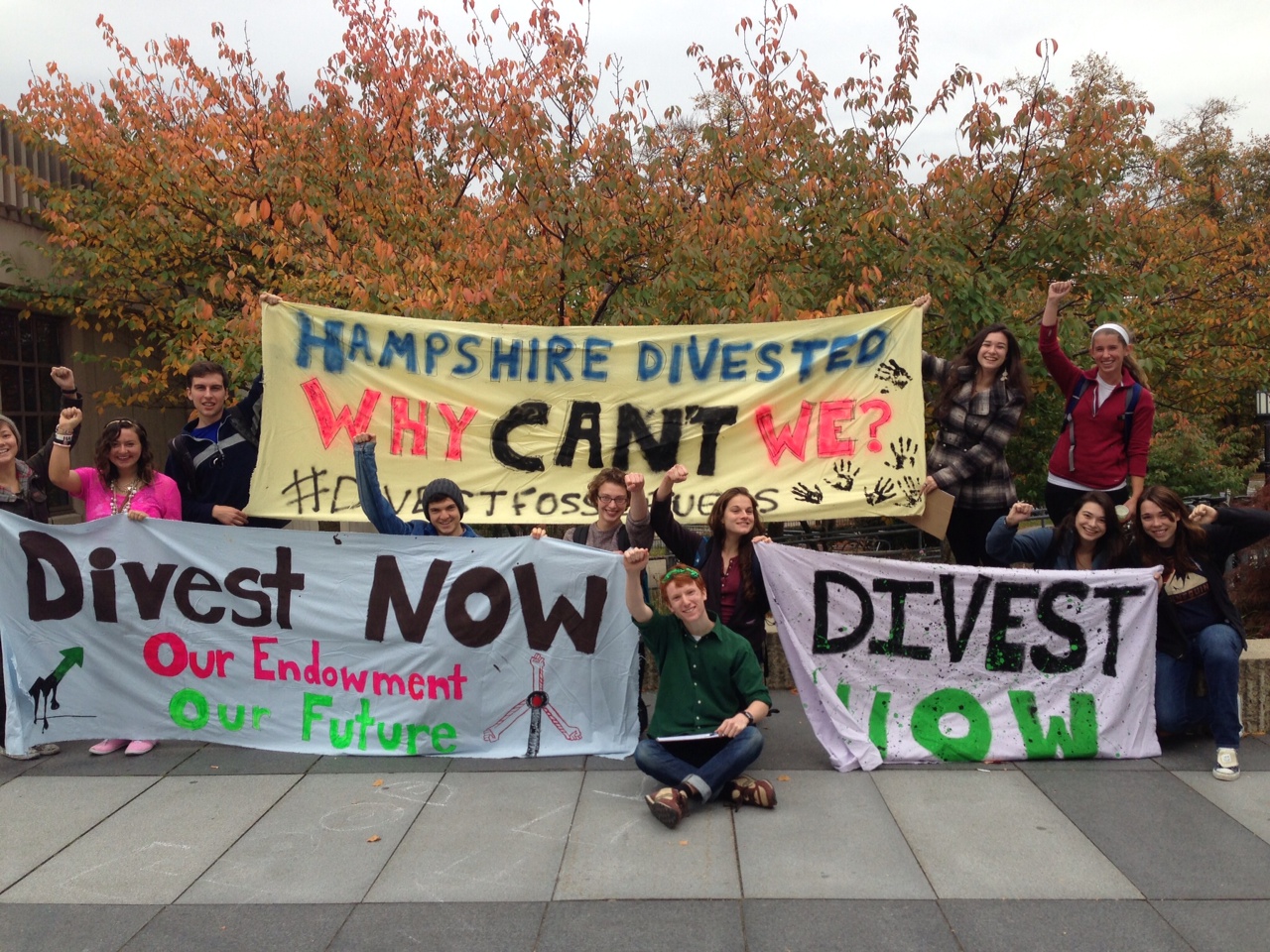By Joseph Lanzillo, Harvard University
As the necessity of curbing global warming becomes more clear, people across the country are realizing that the fossil fuel industry must be challenged. Individuals are joining the campaign to divest from fossil fuel companies, a movement driven by students who are demanding their schools divest from companies that threaten our future. Even though the movement is young, it is clear the divestment campaign is engaging people in the fight against global warming like never before. It’s no different at Harvard.
In late August, students from Harvard’s chapter of Students for a Just and Stable Future launched Divest Harvard. We are working with 350.org and Boston-based Better Future Project as part of a larger movement of over 150 college campuses. We are calling on Harvard to divest its endowment from the top 200 publicly-traded companies and reinvest in socially responsible funds. We have gathered over 1,000 petition signatures from Harvard community members, held events about divestment, and been featured in national media such as Public Radio International, The Nation, and The Boston Globe.
In November, Divest Harvard had a referendum question on our student government election ballot. With 55% of the student body voting, 72% of students supported the divestment campaign. This is significant because divestment received even more support than past divestment campaigns at Harvard. In 1986, the ballot featured a question about divesting from South Africa to end the apartheid, and 65% of students supported complete divestment. In 1990–with 38% of the student body voting—just 52% supported complete divestment. This year’s referendum question shows tremendous support for the campaign that has ignited a passionate movement at Harvard and across the country.
Divest Harvard members have repeatedly tried to start a dialogue with the Harvard administration about divestment. So far, we have been denied a meeting with Harvard President Drew Faust, but our team is hopeful that she will warm up to us and join in on the national divestment conversation. Earlier this year, she was quoted as saying that the University would consider divestment only the “the most extreme of circumstances.” However, Harvard has previously divested from tobacco companies, companies that backed genocide in Darfur, and companies that supported apartheid in South Africa, so is hope that Harvard will consider divesting from fossil fuels. As Jamie Henn, co-founder of 350.org, just wrote in a piece for Boston’s NPR, “If it was right to divest from the tobacco industry, then it’s only consistent to divest from the fossil fuel industry as well.”
The movement has been growing at astonishing rates–not just at Harvard, but across the nation. The overwhelming support in the referendum shows just how much Harvard students care about the environment – and that they are committed enough to make a difference. People previously unsure of how to most effectively combat global warming now have a clear goal to fight for; the divestment movement has unified many in its cause. We have watched campaigns arise at other schools, and watched existing campaigns boom. We can only hope for this trend to continue as we call on our university to invest in our future .






